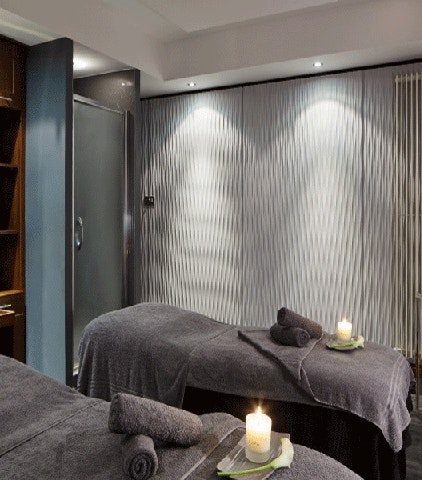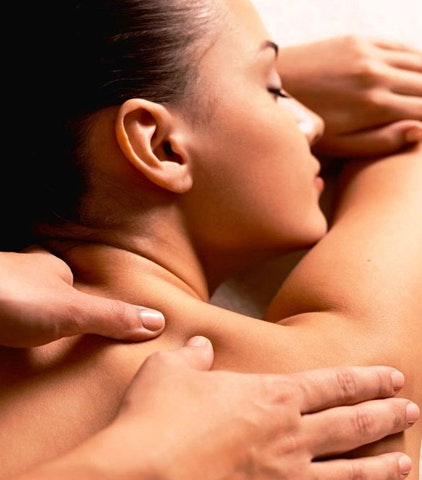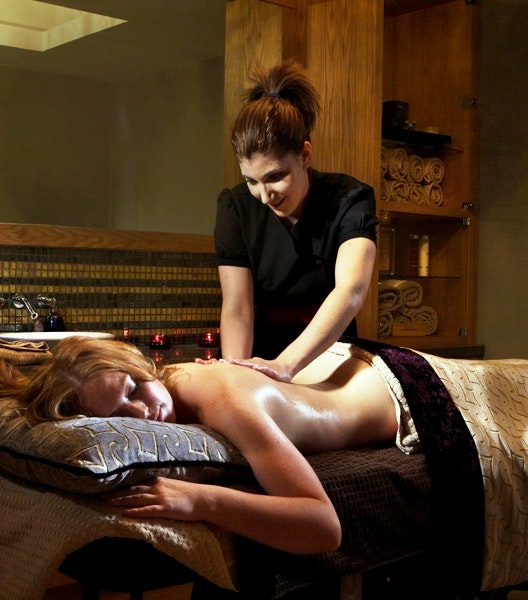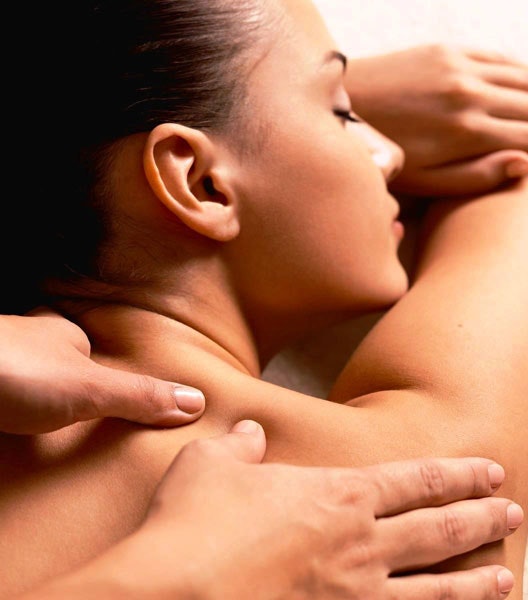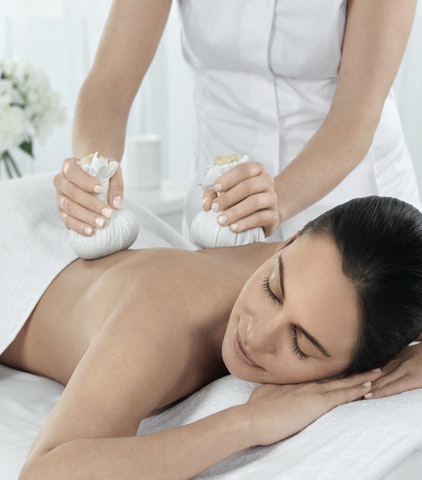
Acupuncture Treatment
Acupuncture is a traditional alternative therapy that has been shown to have tangible benefits for a range of health conditions, from chronic pain to depression.
In this guide, we will be covering:
- What is acupuncture, what does it do and how does it work?
- Does acupuncture hurt?
- Side-effects of acupuncture
- Who should avoid acupuncture?
- What conditions can be treated by acupuncture?
- Can acupuncture help with anxiety?
- Is acupuncture effective? Does acupuncture work?
- An expert’s opinion
- Acupuncture during pregnancy
- Finding acupuncture treatments near you
- How much does acupuncture cost?
- Acupuncture: NHS treatment
- Spas that offer acupuncture:
What is acupuncture, what does it do and how does it work?
Acupuncture is an alternative treatment based on ancient Chinese medicine. Acupuncture
works by stimulating the body to produce natural chemicals and painkillers, such as
endorphins. It does this by focusing on the sensory nerves in the muscles and under the
skin. Beyond this, practitioners believe that acupuncture can have health benefits by
restoring the flow of Qi (or ‘life force’) through channels (or ‘meridians’) in the body.
Acupuncture can seem overwhelming and as an alternative treatment it can be difficult to
decipher what acupuncture does to your body but it really isn’t as complicated as it can
appear online.
The treatment involves the use of fine needles that a trained acupuncturist inserts into
specific parts of the body to stimulate the central nervous system. These acupuncture points
are located across the body, including the arms, legs, back of the neck and forehead. Up to
12 points may be targeted during a session. The needles are inserted and left in place for up
to half an hour. Sometimes they are gently manipulated by the practitioner.
During the treatment your body will reduce endorphins. This natural chemical is released all
throughout your body, into your muscles, spinal cord and brain creating an overall sense of
well-being, physically and mentally.
Acupuncture can be a one-time restorative treatment, or a course of up to 10 sessions may
be recommended following an initial consultation.
Does Acupuncture hurt?
The fact that acupuncture uses needles can be enough to put many people off! However, the
type of needle used and the method of insertion employed mean that you should not
experience pain during the treatment. Instead, you may feel pressure, aching or a tingling
sensation at the point of needle insertion.
Side-effects of acupuncture
Some people experience minor short-term effects following an acupuncture session. These
may include light-headedness, drowsiness and localised bruising or bleeding at the needle
insertion sites.
Who should avoid acupuncture?
An acupuncture treatment is generally safe, as long as it’s carried out by a qualified
acupuncturist who uses sterilised single-use needles in a hygienic treatment room. However,
if you have a bleeding disorder or you use anticoagulants, you should avoid acupuncture.
Other conditions that may make acupuncture an unsuitable treatment include:
- immune disorders
- skin disorders or infections (specifically at the needle site)
- metal allergies
- heart valve disease
NB: We would always recommend talking to your doctor before undergoing any type of
treatment for a new or pre-existing condition.
What conditions can be treated by acupuncture?
The positive effects of acupuncture are largely due to its pain-relieving properties. Beyond
this, practitioners believe acupuncture releases energy blockages within the body, which
restores balance. How acupuncture works is still not entirely known. However, health
conditions that may be improved or alleviated by acupuncture include:
Hay fever: Acupuncture may reduce the inflammatory substances in the immune-system that are involved in allergic reactions.
Rheumatoid arthritis: The endorphin release acts as a natural painkiller, which means
acupuncture can help ease pain, alongside conventional treatments and medication
recommended by your doctor.
Chronic pain (including back pain and sciatica): Again, the release of endorphins produces a natural painkilling effect that can potentially help to alleviate pain.
High blood pressure (hypertension): Some studies have shown positive effects on patients with high blood pressure, both with acupuncture and electroacupuncture (where a mild electric current travels through the needles). It is thought the treatment may stimulate the nerves that in turn stimulate the parts of the brain that control blood pressure. Again, you should only use acupuncture alongside conventional treatments recommended by your doctor.
Headaches/migraine: Again, the release of endorphins through stimulation of the immune and circulatory systems is thought to trigger healing.
Period pain: Acupuncture may offer relief by reducing stress and improving blood flow to the pelvic area and uterine lining. It could also help to regulate your cycle.
Menopause symptoms: Acupuncture may help to balance hormones, easing hot flushes, insomnia and irritability and aiding in more restful sleep. It may particularly offer relief to women who are unable to use hormone replacement therapy or who are looking for an alternative.
Digestive disorders (including irritable bowel syndrome): Acupuncture can potentially help by regulating endocrine and nervous system hyperactivity, which can accompany digestive and bowel disorders.
Reproductive issues: Acupuncture has also proven effective in helping women conceive. This has been attributed to the fact it can help reduce stress, increase blood flow to the reproductive organs and balance the endocrine system, which (among other things) regulates reproduction.
Don’t forget that acupuncture is an alternative therapy, so it’s always recommended to
discuss your symptoms with a doctor. They can advise you on conventional treatments that
may be more appropriate, or suggest how to combine acupuncture with medication and/or
lifestyle changes to achieve the best outcome.
Does acupuncture help with anxiety?
An acupuncture massage promotes the release of endorphins that can boost your mood.
Additionally, practitioners believe that energy blockages in the body can contribute to
emotional symptoms, so acupuncture can help by releasing these blockages and soothing
anxiety.
In simple terms, acupuncture helps you release your natural ‘feel good’ hormones, so it's not uncommon to feel energised, with an improved mood after having the treatment.
It has been reported that people find a significant reduction in their anxiety after one or two sessions, however this will vary from person to person. It's also important to keep in mind that you may need to have continuous sessions to experience long-lasting effects.
Although with the added benefit of having fewer side effects than medication, this can be considered a viable alternative.
If you do currently take medication for anxiety relief, we recommend speaking to your doctor first.
Is acupuncture effective? Does acupuncture work?
When it comes to acupuncture benefits, studies have been carried out demonstrating that
the treatment is indeed effective in addressing a host of conditions.
The National Center for Complementary and Integrative Health states that research shows
that acupuncture may be helpful for several pain conditions and to relieve joint pain. It also
said that benefits continued a year after the treatment ended in all conditions except neck
pain.
An expert’s opinion
We asked Sue Davis, director of health & wellness at the luxury Lifehouse Spa & Hotel what
she thinks about acupuncture:
“Acupuncture is often a therapy people are curious about and so offering this in a spa setting
works well as guests are more relaxed and open to trying out new experiences.
“Many of our guests turn to acupuncture for painful conditions such as arthritic joints, back
pain or those who feel generally unwell but have no obvious diagnosis. It is especially
beneficial for those who are trying to conceive. We have seen great results with ladies of a
certain age going through the menopause.
“Facial acupuncture is becoming increasingly popular for those seeking a natural lift and our
acupuncturist uses special fine needles for this purpose.”
Acupuncture during pregnancy
Acupuncture therapy is not off-limits for pregnant women and can be beneficial in treating
pregnancy-related issues, such as morning sickness and lower back pain. However, it is
extremely important that you let the acupuncturist know ahead of time that you are pregnant
as they will avoid certain pressure points. It is also advisable to check with your doctor
before booking this or any spa or wellness treatments.
If you are looking at acupuncture as a treatment for back pain, a soothing pregnancy
massage may be more suitable. Find out more in our pregnancy guides.
Finding acupuncture treatments near you
While there are lots of facilities that offer acupuncture, it is important that you choose a
qualified practitioner who has professional medical credentials. The British Acupuncture
Council maintains a register of accredited practitioners and you should always ask about
your acupuncturist’s credentials when you book.
While there are private medical clinics and hospitals that offer acupuncture, when you
experience acupuncture in a spa setting, you get to enjoy your sessions in a relaxing
environment that offers a range of additional beauty treatments, wellness services and
leisure facilities.
How much does acupuncture cost?
Acupuncture prices can vary widely, from around £25 a session upward. Sometimes
acupuncture and other alternative treatments are covered by medical insurance, so it’s worth
checking with your insurer if you have private cover or are thinking about taking out a policy.
Acupuncture: NHS treatment
The NHS in England does offer acupuncture, but access is limited. Indeed, the National
Institute for Health and Care Excellence guidelines only recommend it as a treatment for
migraine and chronic tension-type headaches.
Spas that offer acupuncture:
Because it is a specialised alternative therapy, you won’t find acupuncture on the treatment
menu at every spa break venue and it’s not offered as part of a spa package. However, you
can book acupuncture sessions at selected health spas, including:
- Lifehouse Spa & Hotel in Essex: Following an initial consultation with the therapist, an
individual treatment plan will be suggested. A 55-minute session costs £85.
- Champneys Henlow Grange Health Spa in Bedfordshire: The 50-minute Chinese Body
Therapy treatment combines acupuncture with tui na massage (an invigorating style of
massage that is not dissimilar to Swedish massage) to promote overall healing and
wellbeing.
Contact the SpaSeekers team today for more information or to book your next spa
experience.
